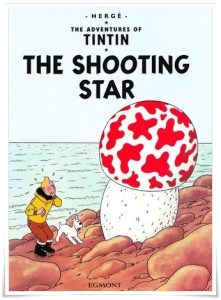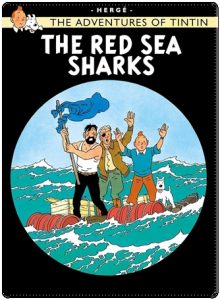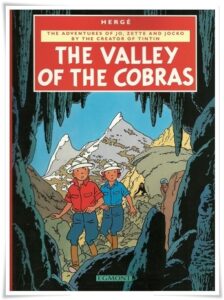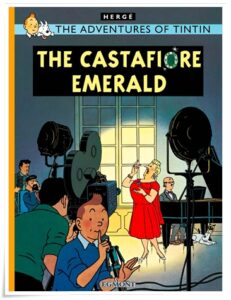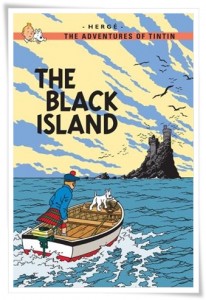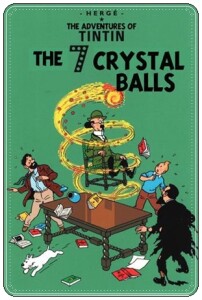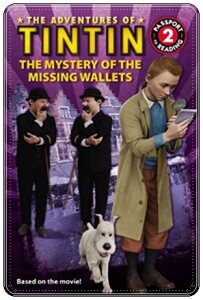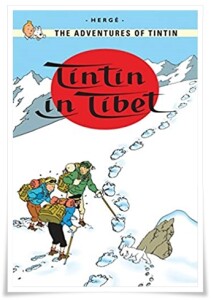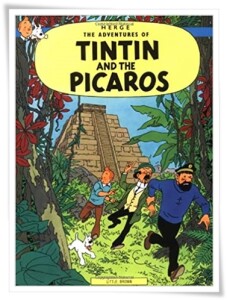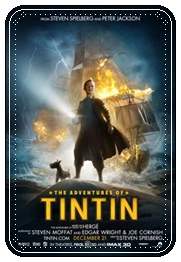Tintin: The Shooting Star
by Hergé (Casterman, 1942)
trans. Leslie Lonsdale-Cooper & Michael Turner (Methuen, 1961)
A straightforward adventure in the style of early SF novels: a hint of the supernatural, a lashing of fantastic elements (most memorably the gigantic mushrooms and other dreamlike eruptions), but a dramatic pulse that comes largely from the sabotage- and race-to-get-there-first plots.

